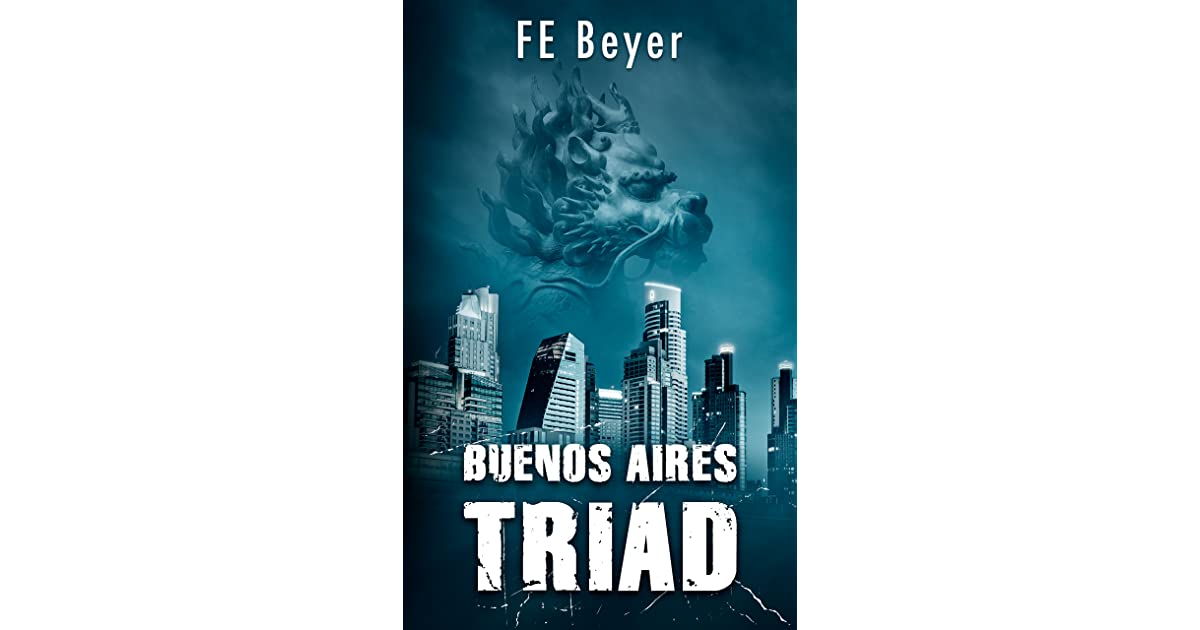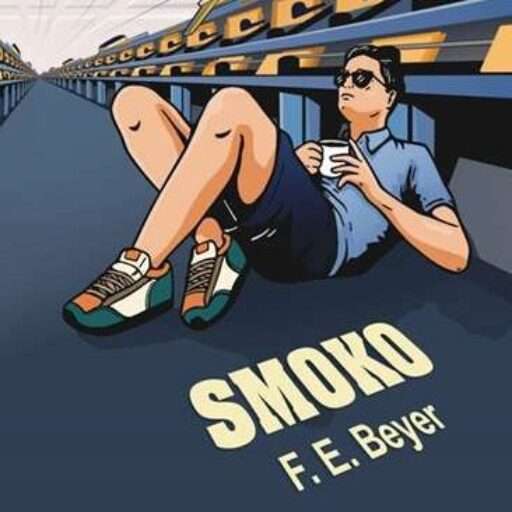
STOLEN WATCHES
Six months after his father died, Lucas started buying stolen watches. The old man had chased scum selling stolen stuff or fakes out of the shop with a wooden table leg. Worse still, with a few exceptions, Lucas was buying from foreigners: a Paraguayan, a Senegalese, and assorted others. “Foreigners?” his father would say. “Pouring over the borders…thieves from Bolivia, former Shining Path guerrillas from Peru, born slum-dwellers from Paraguay. Do you know the Shining Path Lucas? Communist extremists who bombed the hell out of Peru in the nineties, then turned to drug trafficking until the Peruvian government kicked them out. Over our unpatrolled border they came, and are now happy and safe cooking up crack in the villa miseria in Bajo Flores. You see, Argentina is the country for your criminal businessman. The politicians don’t care about protecting our borders, the more uneducated and poor people we have, the easier it is to get votes in exchange for a few bottles of Quilmes beer. Unlike the Italians and the Gallegos, even the Arabs, these newcomers from neighbouring countries don’t work. Your great-great-grandfather, Lucas, came here from Genoa in 1908. He got off the boat and a sign saying, ‘You are here to work’, greeted him. The oligarch families put that up. They had divided the land between themselves into huge estates and thought Argentina was theirs forever more. We showed them. Your great-grandfather unloaded boats in La Boca, but he knew how to repair watches, and here we are.” Lucas tried to stop this lecture that had gone through his brain a thousand times. The guilt his father had felt when the business went downhill contributed to his early death. The crash of 2001, then some terrible governments, and other factors contributed to his financial problems. Ultimately, though, his father blamed himself that they had to shut the shop downtown Buenos Aires and rent a much smaller place in this southern neighbourhood. What would he think of his son buying and selling hot watches? And that was nothing compared with what Lucas had got himself involved in now.
The shop bell sounded, a welcome distraction from his thoughts. A familiar coughing and wheezing had come in: Dad’s friend Arquímedes, a man with fantastic posture for a seventy-year-old. While most men his age leaned forward, he tilted his head way back to look down his nose at you. He could do this even with those taller than he was, and with Lucas he gave away about fifteen centimetres. Lucas imagined the hours of stretches Arquímedes did to maintain his posture. Today this old man had a rotten expression made of pursed lips and angry diagonal brows. Had he queued for ages to get his pension money that morning? Lucas could see he wanted to take his frustrations out on somebody.
“My strap is broken!” Arquímedes threw a Lige watch on the counter; the top strap was shorn of the loop and buckle.
“How did it happen?” This question was barely out when Lucas wanted it back.
“What do you mean, how did it happen? It wore out. Made in China, wasn’t it?
“Yeah, but the watch is made in China too and you’ve had it for three years.”
Looks like it’s been cut with a knife or scissors, Lucas wanted to say, but thought the better of it. “How about a quality Brazilian-made strap? I’ll have to order it in.”
“Brazilian made! More likely arrived in Ciudad del Este on a Chinese plane, smuggled into Brazil and then Argentina.”
“No, this is made by a legit Brazilian company.”
“Those animals couldn’t make anything.”
“Well, do you want it?”
Arquímedes’ eyebrows lifted into high arches that shouted, how dare you! But he needed the strap. “Order me one.” Then wearily, but with great satisfaction, he said, “I didn’t get treated like this by your father.”
“We used the same brands and suppliers when he was here.”
“Perhaps you did, but it’s the attitude that counts. How much will this Brazilian strap be then?”
“Eight hundred pesos.”
Arquímedes extracted eight bills and slapped them on the counter. This was all a show, it wasn’t necessary to pay now. He turned and, almost falling over backwards, walked out. It gave Lucas no satisfaction that paying the eight hundred had obviously emptied the man’s wallet. He felt upset he couldn’t have been nicer to Arquímedes – the likes of whom were his bread and butter. The ability to smile at difficult customers was important. Arquímedes was toxic, but he and his ilk propped up the carcass of a business that paid Lucas’s rent.
The bell went again, and in came a well-lined forehead and expressionless eyes. The face would have suited a mechanic or a senior union rep. The man’s tight blue shirt and black slacks didn’t go with his mug, nor did his brown leather shoes, belt, and backpack. Flash clothes and that face meant a successful criminal, somewhat successful anyway. His name was Gustavo, and Lucas had agreed to work for him as the gang’s spotter at the airport as a one-time gig. This was Gustavo’s fifth time in the shop. On his first couple of visits, he brought in watches to ask their value. First a Seiko that usually sold for two hundred dollars. Then a Submariner that, despite being fake, was still worth a hundred. “You could get much more if you pass it off as real,” Lucas had told him, “just don’t try to sell it to anybody who knows about watches.” Gustavo got three hundred dollars for the Submariner.
On the third visit, he had a bottle of fernet as a gift: Fernet Branca, a brand said to be better than the rest, and hence twice the price. Not that he’d ever tell anyone, but Lucas preferred the lowly Fernet Vittone. Lucas found his visitor’s friendly manner forced. He could imagine Gustavo, who was in his late thirties and only one metre seventy tall, as the silent thug backing the boss up. Smaller tough guys were always more dangerous because they had more to prove. As they drank the fernet, Gustavo had told Lucas about an “opportunity”:
“They are easy, these tourists. They’ll get it all back on insurance anyway. You choose the target and the Venezuelans will do the rest.”
“Where did you find these Venezuelans?”
“Oh, that was dead simple.”
There was always a new group of immigrants more desperate and ruthless than the last. However, the growing numbers of Venezuelans in the country had made a largely positive impression. Whether you believed President Maduro was an evil dictator or a legitimate leader victimised by Yankee imperialism, it was undeniable that huge waves of Venezuelans were leaving their homeland to get away from his regime. Those who reached Argentina were often well-educated and well-qualified. They found work more easily than locals did, and this led to a debate about what was wrong with Argentine work culture. Lucas knew a guy, another old friend of his father, the owner of a restaurant in the upscale neighbourhood of Recoleta, who only hired Venezuelan waitresses. He was not shy about telling everyone why: “They treat people well, and when there are no customers they find work to do, like cleaning or organising cutlery. Argentine waitresses have a bad attitude and provide snail-like service. Worse still, when you fire them they file a case against you. It’s common for them to sue for wrongful dismissal and win.” Lucas himself preferred Venezuelan Uber drivers – they would ask what music he wanted and if the aircon was at the right level. Local drivers, by contrast, treated passengers as captive audiences to listen to their long lists of grievances against the world. Beyond the service industry, Venezuelan doctors were a godsend for rural areas in far-flung provinces that local doctors didn’t want to go to.
On the other side, Venezuela was a country with an astronomical crime rate, and many hardened criminals were leaking out of there. Argentina was yet to have the problems of countries closer to Venezuela, like Peru, where the cops had recently raided a hotel and arrested one hundred Venezuelans suspected of being involved in organised crime. However, a number of Venezuelans were starting to get arrested in Argentina, damaging the hardworking reputation the community had.
On his fourth visit to the shop, Gustavo gave Lucas Dinos’s Philippe Patek to sell. Lucas achieved this through a private Facebook group, and Gustavo let him keep twenty percent. That was a beautiful watch! Lucas loved the rippling Côtes de Genève decorations etched on the main metal movement plate and the warm glow of the metal face. But when Lucas saw the story in the paper about the beaten-up Greek tourist, he didn’t want to have anything more to do with Gustavo and his gang. Lucas messaged him saying he could find another sharp-eyed watch expert. Gustavo texted back “OK,” but now he was back for visit number five. He didn’t have any watches or fernet, just another gig.
“I need your help again Lucas, I have another spotter coming down from Paraguay soon, but the team is ready to do a job this week. I’ll give you twenty percent if we get a watch and ten percent of anything else. Here, take two hundred dollars now.” He dropped two bills on the counter. “We need you, these Venezuelan kids are uneducated, they can’t pick out a target with a great watch and luggage full of goodies, much like you couldn’t be a gunman… Let me know by midnight tonight.”
Gustavo wasn’t a guy to piss off. He could report Lucas to the police for buying stolen watches, not that they would care. He could beat Lucas up or smash up the shop – again, no big deal. The Venezuelans who worked for him were more than capable of killing Lucas, but that would bring heat down on the gang.
Lucas closed the shop at eight and went upstairs to the apartment. He poured himself a large fernet and coke, and cooked gnocchi in a saucepan his father had bought during a brief flirtation with cooking immediately after Lucas’s mother left. By midnight, Lucas was three fernets in. Sleep was impossible. He decided to go for a walk. It was hot outside, the air heavy. He planned to wander a bad neighbourhood a couple of kilometres north of the shop; this would take his mind off making a decision. When he got to the dodgy area, a downpour that had been threatening for days started. The rain sent the street life scrambling for cover: hookers with Victorian hoop-dress-shaped butts, trannies with cut-price Botox, pimps, thieves, drug fiends, and assorted ghouls. He had wanted to get a harmless thrill gawking at these odd bods; was there something wrong with that? As the rain grew heavier, homeless people wrapped in blankets tried to pull themselves further into doorways. He thought about kicking one of these wretches, really hurting somebody. Why not? Something he hadn’t tried before. But would he feel better for doing it? How would he react to his own violent act? He walked on, mortified by his fantasies. A patrol car passed, the officers inside didn’t bother with turning their heads to look at him. His greasy, wet hair fell into his eyes, which began to sting. He cursed himself for the situation he was in. By the time the rain stopped, his distress had dissipated, and he headed home. In the morning, he had a tachycardia-inducing hangover. After a breakfast of toast and eggs, he did it: he texted his decision to Gustavo.
